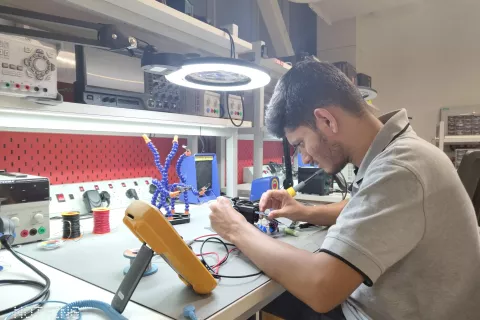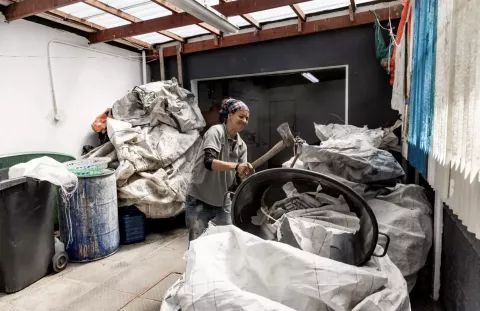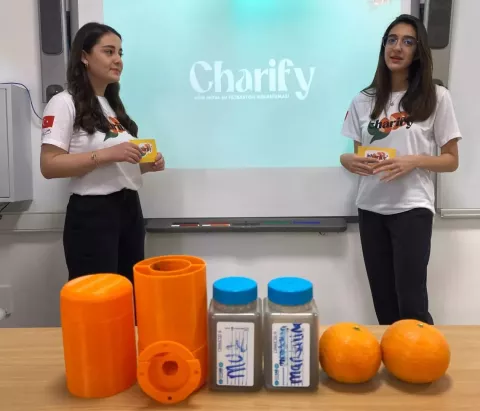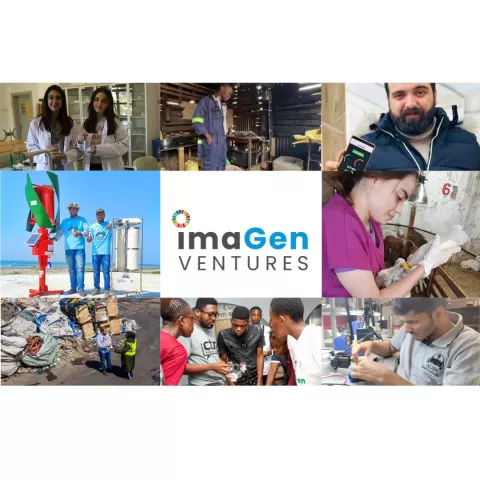World Youth Skills Day 2021
This World Youth Skills Day, let’s invest, let’s reimagine, let’s learn, so that every young person has a chance to succeed.
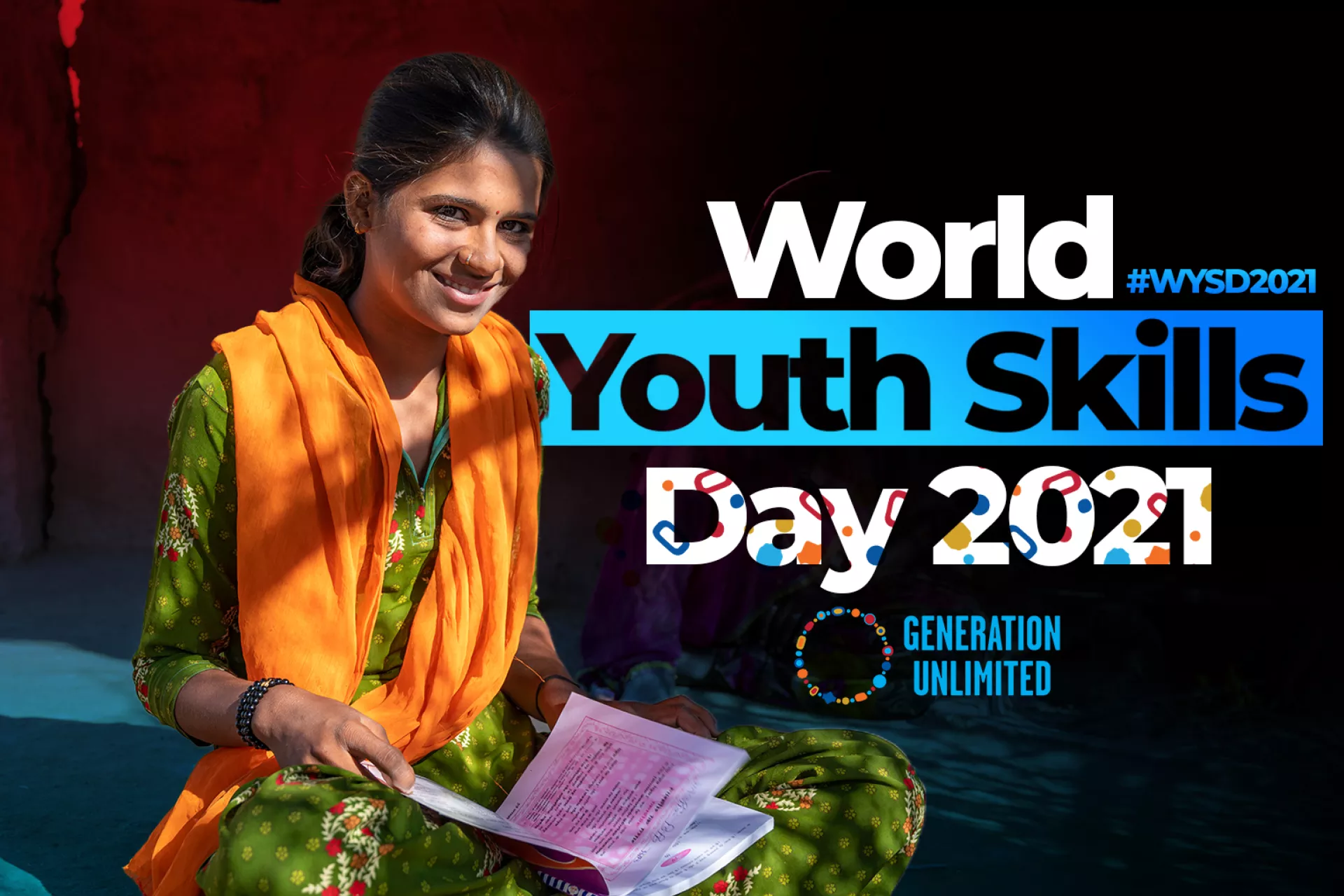
This World Youth Skills Day comes amid a global education crisis. Global disruptions in education, social isolation, dwindling economic opportunities, and a marked uncertainty about the future have been devastating for young people, and the repercussions will be felt for years to come.
Because of COVID-19, over 1.6 billion children and youth have not been able to attend school in person, some for more than one full calendar year. By 2030, it is estimated that another 825 million children will not acquire the basic secondary-level skills—like transferable, digital and job-specific skills—needed to support lifelong learning and employment.
Every month, 10 million young people reach working age. But are they ready for the job market? The reality is, too few of them are. Hundreds of millions of them are not developing the skills they need to access decent work, start their own business, or even engage in their community.
Young people have been facing a growing mismatch between the skills they are formally learning and those increasingly in demand by employers. New technologies and the impact of Covid-19 pandemic on the labor market are fundamentally transforming the type of skills needed in the workforce, and education systems are struggling to keep up with the pace.
In short, yesterday‘s skills don’t match today’s job market, and the need to reach all young people with relevant learning and skills has never been more important and urgent.
Re-skilling and up-skilling: how do we move forward from here?
Against this backdrop of irreversible changes on the horizon for the post-pandemic world of work, the world’s top priority must be to equip youth with relevant skills and connect them to opportunities for employment, entrepreneurship, and social impact.
This World Youth Skills Day is an important opportunity to reimagine how education and skills are delivered to prepare students for a rapidly changing world of work.
Reimagining skills-building means first and foremost reimagining the kinds of skills that we impart in young people. For success in school, life, and work, young people will need these types of skills the most:
Foundational skills: Foundational skills, namely literacy and numeracy, are essential for further learning, productive employment and civic engagement.
Digital skills: Digital literacy enables children and young people to use and understand technology, search for and manage information, create and share content, collaborate, communicate, build knowledge, and solve problems safely, critically and ethically.
Transferable skills: Also called “life skills,” “twenty-first-century skills,” “soft skills,” or “socio-emotional skills,” these allow young people to become agile learners and global citizens equipped to navigate personal, social, academic and economic challenges. Transferable skills also help young people affected by crisis cope with trauma and build resilience. They include problem-solving, negotiation, managing emotions, empathy and communication.
Job-specific skills: Also known as “technical" and "vocational" skills, these are associated with occupations and support the transition of older adolescents into the workforce.
Entrepreneurial skills: As COVID-19 accelerates the global economy’s need for creating new markets and avenues, entrepreneurship skills and self-employment are now more important than ever for young people to meet their aspirations and foster sustainable economic growth and social development.
The top skills for 2025 are unsurprisingly full of deeply human capabilities which are not easily replaceable by algorithms. And they are skills that we can teach all young people.
Supply of demand-driven skills is as fundamental as the availability of sufficient jobs for young people. But that’s just the beginning. Closing the skills mismatch means attacking multiple issues at multiple levels:
- We need comprehensive and cohesive policy frameworks. National youth employment strategies, whether stand-alone or integrated, are needed for effective coordination across diverse and interconnected ministries and agencies. They allow for skills recognition by employers and job creation, matching supply with demand.
- Young people need access to education and skills development systems that are inclusive, gender-responsive and demand-driven. They must offer the full array of skills that young people need to lead a productive and meaningful life.
- Youth need access to certified, flexible, and multiple learning pathways that include remedial or accelerated learning, to meet their individual needs and circumstances. This must be supported by reliable, quality and fully funded holistic services including job search assistance, job-matching platforms, access to finance and markets, and career counseling and mentoring support.
- A close relationship must be forged with the private sector such that students are introduced to the world of work during secondary education through employer visits to schools, workplace visits, and gain some work experience through apprenticeships, internships, job shadowing, and on the job training.
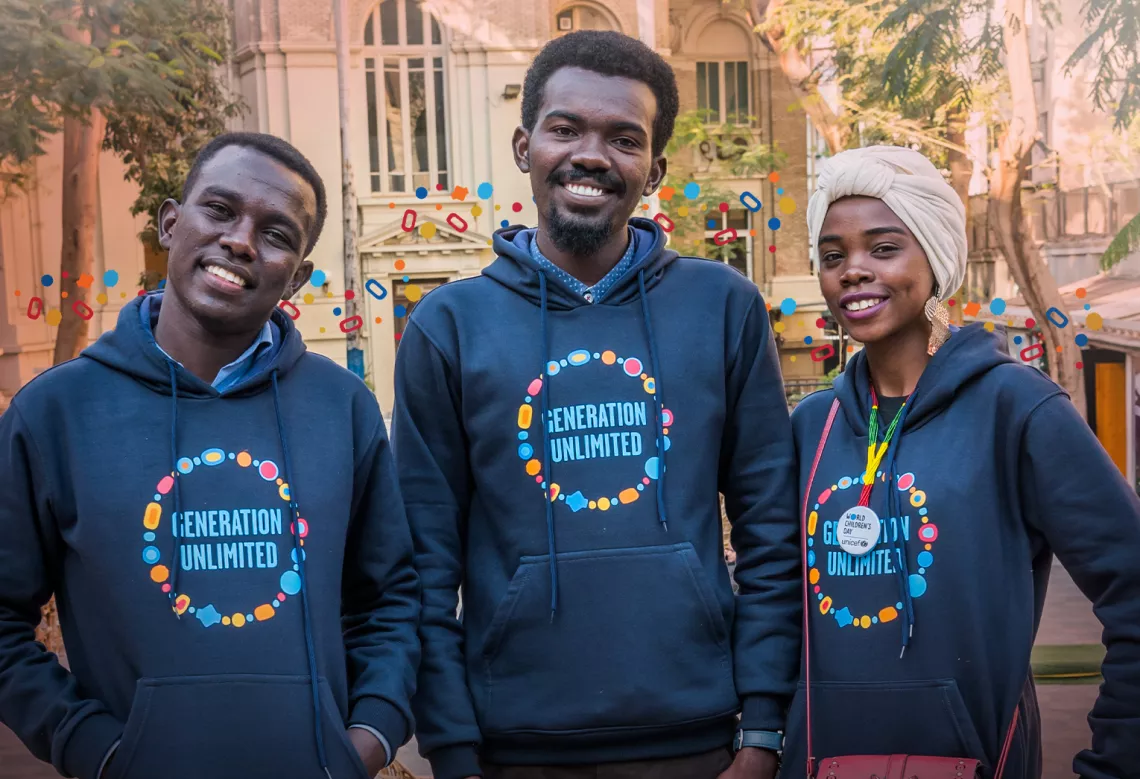
No one can do this alone. We must forge partnerships across public and private sector boundaries and join forces with young people and civil society to transform the systems that hold young people back from reaching their full potential. Close collaboration between young people, education innovators, policy-makers, and businesses—with a focus on skills as the core currency of the labour market—will deliver positive impact for everyone—young people, businesses, and communities.
This World Youth Skills Day, let’s invest, let’s reimagine, let’s learn, so that every young person has a chance to succeed.
We need to increase the urgency and enhance the speed of reform. And we need to keep young people at the center of it all.
Catalyzing Impact at Scale With and For Youth
Meaningful youth engagement means going beyond just giving youth a voice—we must enable them to steer the agenda and trust them with the decision-making authority they need to be at the forefront of the decisions around policies and programs that will define their futures.
And this is what we’re trying to do at Generation Unlimited (GenU). GenU is the world’s leading Public-Private-Youth partnership, and we’re on a mission to enable all of the world’s 1.8 billion young people – wherever they live – to realize their full potential by skilling and connecting them to opportunities for employment, entrepreneurship, and social impact.
With over 200 partners – including businesses, foundations, UN agencies, International Finance Institutions, Civil Society Organizations – and importantly, youth-led organizations – GenU has reached over 100 million young people in 40 countries across six continents by the end of last year with skilling, entrepreneurship, employment and social impact opportunities.
GenU’s footprint has now expanded to nearly 50 countries, and we’re scaling up partnerships with local grassroots entities that serve or are directly managed by young people.
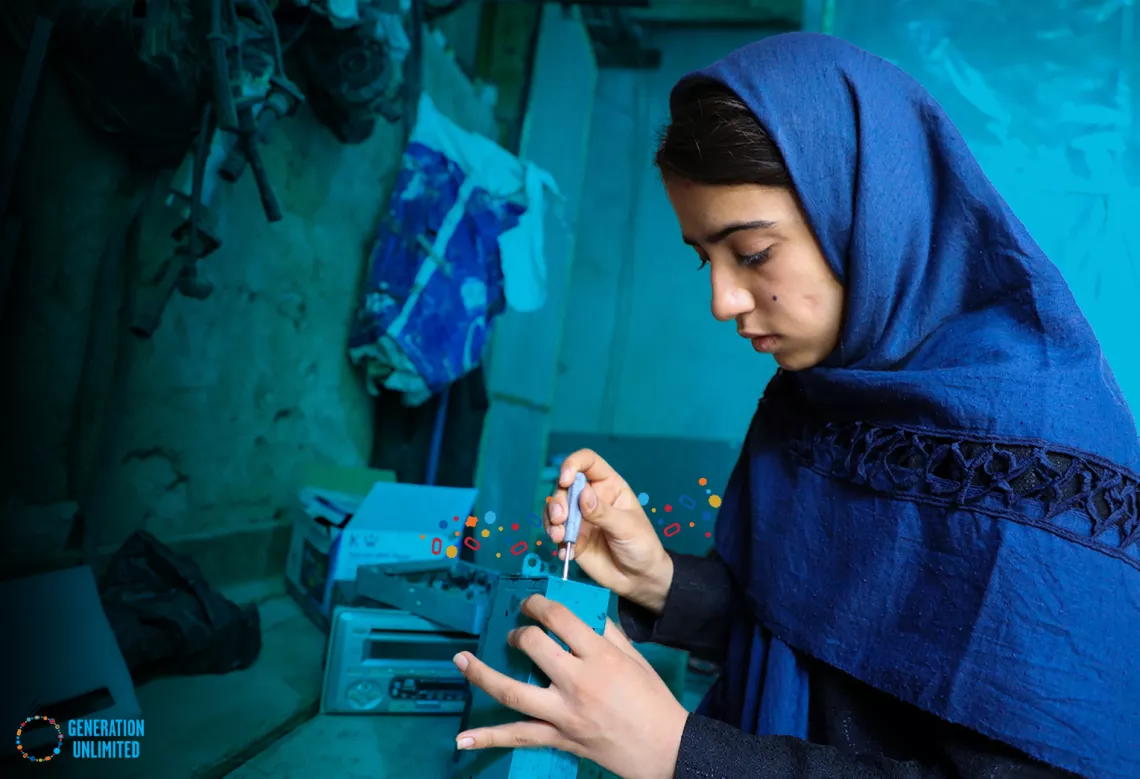
Rallying major private-sector corporations, governments, Heads of State, CEOs, civil society organizations, UN agencies, multilateral development banks and young people themselves, we’ve co-created many globally scalable programs to empower young people.
For example:
- We’re working in Brazil with a coalition of 85 private sector partners to connect 1 million young people with job opportunities,
- We’re working with PwC to upskill 300 million young people in India.
- We're supporting 9.6 million volunteers (84 percent of whom are young people) in more than 35 UNICEF Country Offices and across the globe to take community action through our Global Volunteer Initiative.
- Through the Youth Challenge, we’re working with over 200 organizations and private sector entities to foster mass entrepreneurship and cultivate 15 million young aspiring entrepreneurs in 43 countries.
These are just a few examples, but one thing is consistent: every partnership forged, and every program put forth is co-designed and co-created with young people.
Keeping youth at the heart of the agenda is the defining trademark of Generation Unlimited— and it has been a critical driver of GenU’s success as a response to the challenges of young people. The whole partnership is steered by them because they understand the challenges they face and the future they want to create.
As countries begin to recover from the COVID-19 pandemic and pursue sustainable economic growth, they have a historic opportunity to close educational and skills gaps once and for all, and enable youth to build a better future—for themselves and for us all. Let’s build forward stronger! The need is urgent. And 1.8 billion young people are waiting. Join us to transform the world with young people!

